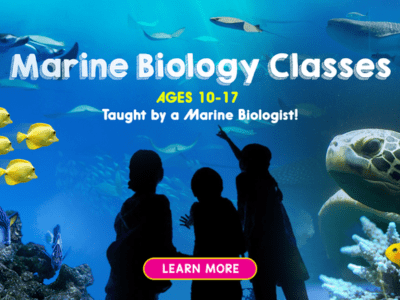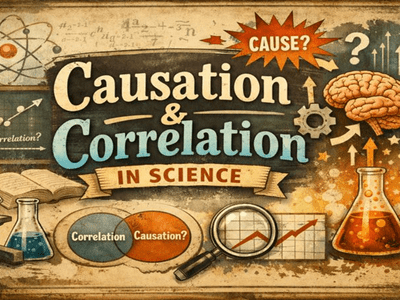Marine Biology 101

THIS CLASS IS FULL FOR THE 2025 SCHOOL YEAR. ENROLLMENTS FOR 2026 WILL OPEN IN MAY.
If you enroll in Marine Biology 101, you are guaranteed space in the remaining marine zoology classes as long as you enroll before the deadline for each class.
This class is the prerequisite for our full year Marine Zoology course.
Marine Zoology: Invertebrates Part 1 (begins in October)
Marine Zoology: Invertebrates Part 2 (begins in December)
Marine Zoology: Vertebrates(begins in February)
CLASS DESCRIPTION
If you have a student aged 10-17 that has an interest in marine biology, this is the class you want! My degree is in Marine Biology (from Texas A&M University at Galveston), and marine biology was the very first homeschool class I ever taught. I have since branched out into many other sciences, but always love it when I can teach my passion—ocean life! This will not be a “fluff” class, or an “overview”—it is an intensive, science heavy class where students will learn marine biology from many different aspects—taxonomy, evolutionary relationships, anatomy, function, habitat, etc. There will be no surface skimming in this class! We’re going to go deep!
Students who complete our full year of Marine Zoology have the option in late April/early May to attend our 5 day hands on workshop in Bocas del Toro, Panama! This amazing opportunity is not to be missed! Students will be hands-on in the field, every day, both in and on the water, putting the knowledge they have gained during the year into practice! Please see our Panama Workshops page for more information.
CLASS FORMAT
No live classes—view lessons on YOUR schedule. In general, expect 1.5-2.5 hours to work through the lesson plan each week, and an additional 2-5 hours working on assignments (it really depends what assignment your child chooses to do and how they manage their time). For classes with two levels, the material is the same for both—the depth of the assignments differs. Younger students should usually be placed in Level 1. Older students, or younger students who want more of a challenge, should be placed in Level 2.
Each lesson consists of a fully narrated PowerPoint presentation with images and videos to enhance the topics. Students will have access to our learning management system, Canvas, for viewing their lesson, printing worksheets, taking quizzes, viewing/submitting assignments, participating in discussions, and viewing grades/feedback. Read more details about class format.
In this class, students will be learning five of the foundational topics of marine biology:
1. Taxonomy:
Students will learn how taxonomy works, how to read cladograms and see evolutionary relationships, how to read dichotomous keys, and how to create them. This course is heavy in taxonomy and key work- students will be learning the major taxonomic divisions of the animals we study. So a strong foundation in taxonomy is necessary!
2. Zonation:
The ocean is VAST! And just like on the land, there are many different habitats that dictate evolutionary adaptations and the species that can survive there. We will learn all of the ocean life zones- both horizontal and vertical. These zones will be referred to in future courses, so it is important that students understand the terms and habitat conditions that are associated with them.
3. Protists:
Did you know that kelp isn’t a plant? It’s a protist! As are many of the creatures- both plant like and animal like- that make up the plankton that is the basis of the food chain. Students need to understand what separates these organisms from true plants and animals.
4. Plankton:
You can’t have the largest animal on earth (the blue whale) without the tiniest ones- plankton! We’ll learn about phytoplankton and zooplankton, focusing on individual species and their importance in the marine food chain. We will talk about plankton in some capacity in every other marine biology lesson plan, so this is a biggie!
5. Plants:
There are actually a few true plants that are considered to be marine (most of what you think of as plants are actually protists!). Although not a major foundation for the rest of the course, this is the best place to talk about plants! We’ll learn about what separates a plant from a protist, and some of the unique habitats and ecosystems these plants are the “root” of! 🙂
I have created educational videos to accompany the course—many of these will be on site at various areas around southern California, both at the ocean and in some of our local aquariums. Each week, there will be a choice of hands on projects for students to complete to reinforce their knowledge of the material.
Next Level Homeschool is a firm believer that not all learning should happen from behind a screen! That's why we give students the freedom to submit their assignments in the way THEY want to! We don't want regurgitation learning here. By allowing students to use their own talents, skills, and passions to complete assignments, they become even more engaged and retain the information. Why? Because now it's literally in their hands! We receive thousands of projects every year from our students: written reports, videos, models, posters, Scratch, Minecraft, Roblox, songs, poems, skits, drawings, sculptures, crafts—we've seen it ALL! And WE LOVE IT!!
Click here to view just a few projects we've received from students who have taken this class and see what YOUR kid could be learning with Next Level Homeschool!
Course Features
- Schedule Fall 2026
- Activities Science
- Lessons 4
- Suggested Ages 10-17 Two Levels
- Time This class is currently closed for enrollments.






